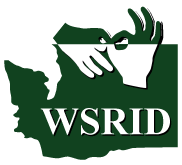GENERAL SCHEDULE Friday:
Doors & Registration Open
Opening Keynote
Workshops
Dinner Break
"All Walks of Life" Saturday:
Doors Open & Refreshments
Workshops
Recognition Banquet & Keynote
Workshops & WSAD Biz Mtg Sunday:
Doors Open & Refreshments
Workshops
Closing Keynote |
Saturday – October 18th
|
|
|
|
|
|
|
|
|
|
|
|
|
|
|
|
|  |
|
|
|





















